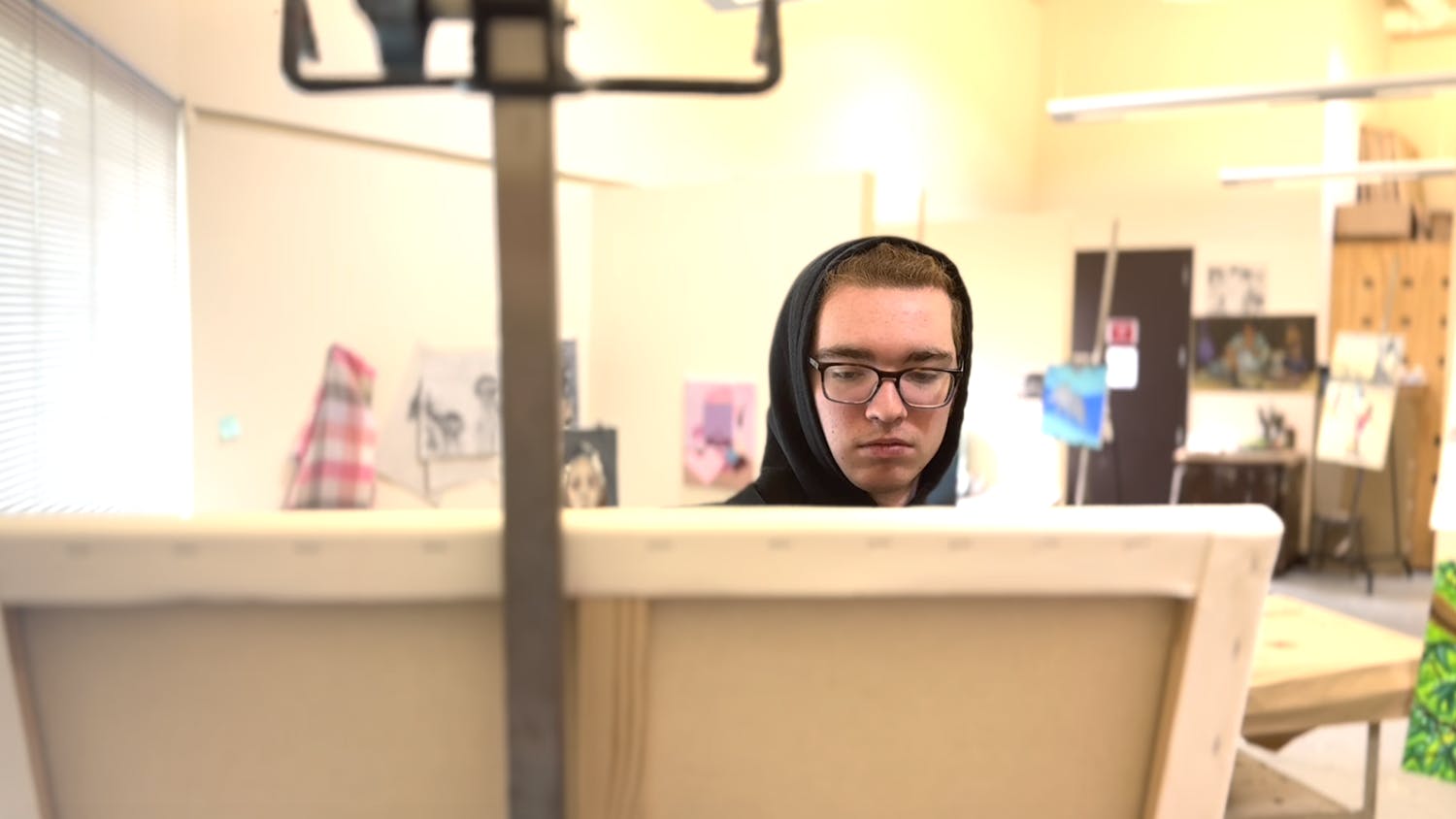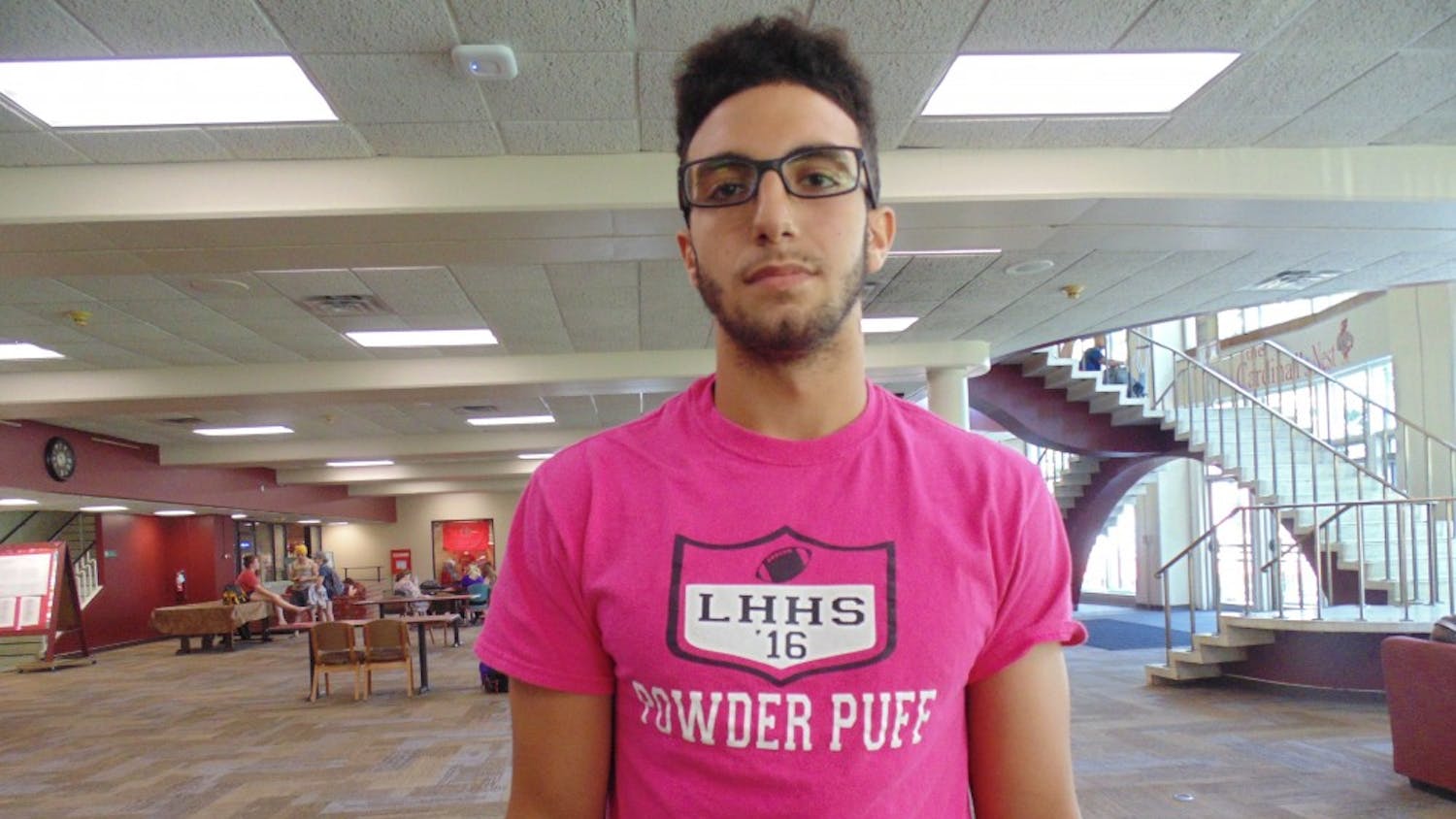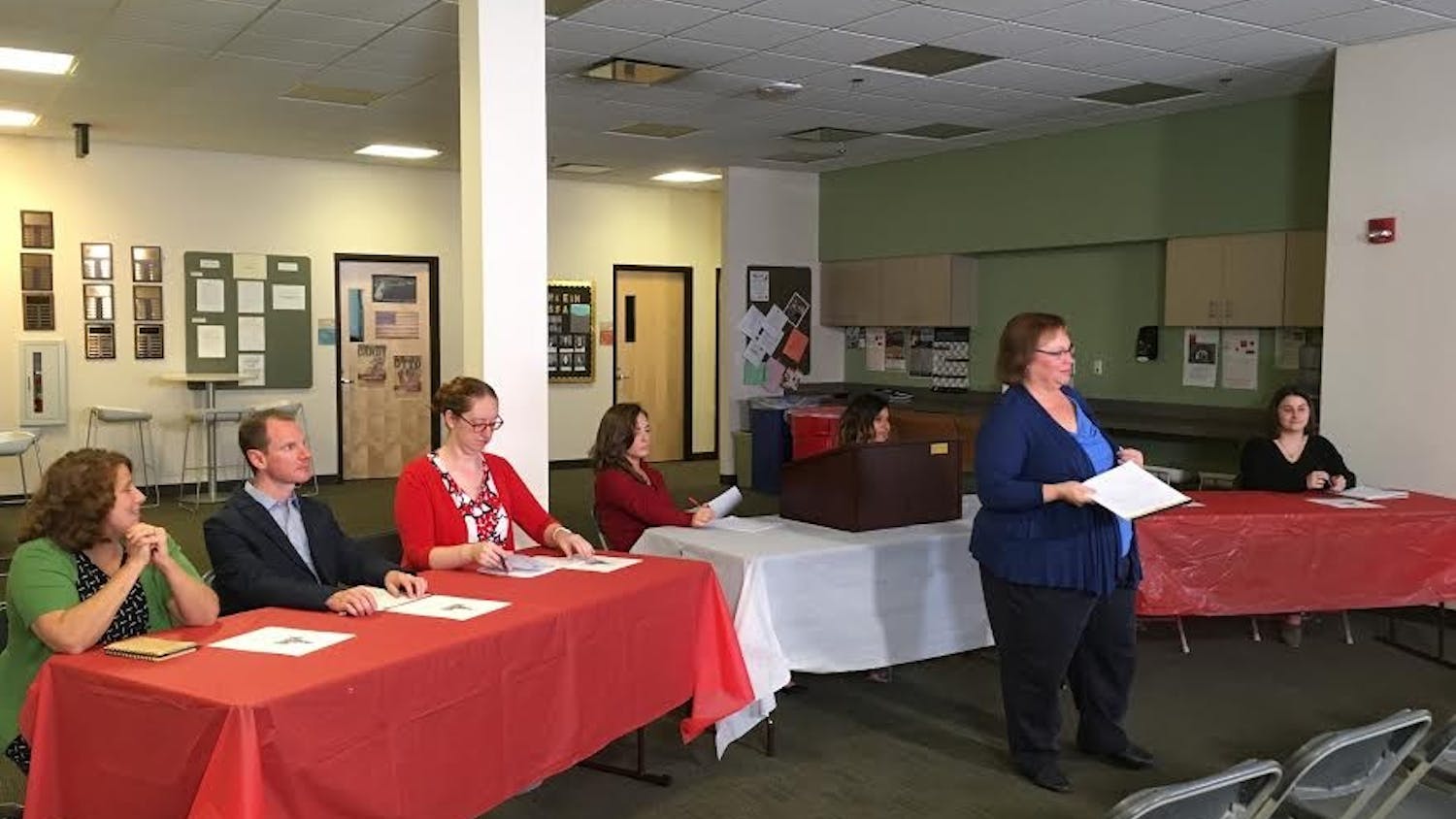The theatre department's Classroom Project occurs once per semester. Stage manager Rebecca Schafer and actors Emily Vanni and Peter Moses talk about how the project was started and how its performances differ from a mainstage theater production.
Schafer, a sophomore BFA theater major with a concentration in design and technology, said the Classroom Project started in response to a mainstage show that was believed to be too controversial. In order to carry out the show, the department made a mainstage production smaller, becoming a Classroom Project. The theatre department has since adapted the Classroom Project into a biannual production.
Schafer said The Classroom Project productions are acting-intensive and allow the performance of more exploratory pieces. She also said that acting majors benefit from the Classroom Project because it allows actors to experience smaller productions that pay more attention to the detail of each actor.
Productions that are a part of the Classroom Project are non-profit. The shows usually have a lower budget, a smaller staff and are not publicized as well as the mainstage performances throughout the rest of the year.
The shows chosen for the Classroom Project are different from the larger productions that take place in Cowan Hall. The plays cover controversial topics and often contain bad language and sexual content--topics meant for mature audiences who can relate to them. It is because of the mature content that the actors have more freedom of expression.
All of the performances take place in the Pit Theatre, located underneath the Campus Center. A smaller stage allows for a more intimate setting. Emily Vanni, junior BFA acting major, said a small stage is easier for the actors to connect with the audience since they are so close to the stage.
“As a performer, you’re doing what you do for the audience. So for me it’s cool to have the audience right there with you because you can communicate with them more,” Vanni said. “Everyone is having such an intimate and personal relationship with each other in the audience and with the cast members.”
Vanni said she thinks physical distance can make it harder for the actors to connect with the audience or draw them into the actors’ world.
“We can interact with them, and hearing them laugh and react helps us feed off of them,” Vanni said.
Peter Moses, sophomore BFA acting major, said smaller productions require a more intensive acting style. Moses has spent most of his Otterbein acting career performing in the Pit. He prefers the space and said this semester’s show is very demanding, in terms of the energy it requires from the cast.
Vanni and Moses agree that the roles they play in this semester’s Classroom Project are different from what they are used to.
“I get to experiment with being someone completely new instead of some stereotypical version of myself. I like being something that's different,” Moses said.
Vanni said that relating to her character has been a challenge for her.
“The journey our characters go on is more mature than what us as students and 20-year-olds can even think about … trying to find depth and the struggles of being a parent when none of us are a parent,” she said.
Both actors said that the most rewarding performance aspect is overcoming what challenges them. The challenges lend perspective of how different people view the world and how disagreements can cause chaos. The actors have to put themselves entirely into that mindset, which has been a growing experience for them, Vanni said.
This semester’s Classroom Project is “God of Carnage.” The show runs May 8-10 at 8 p.m. in the Campus Center Theater.







